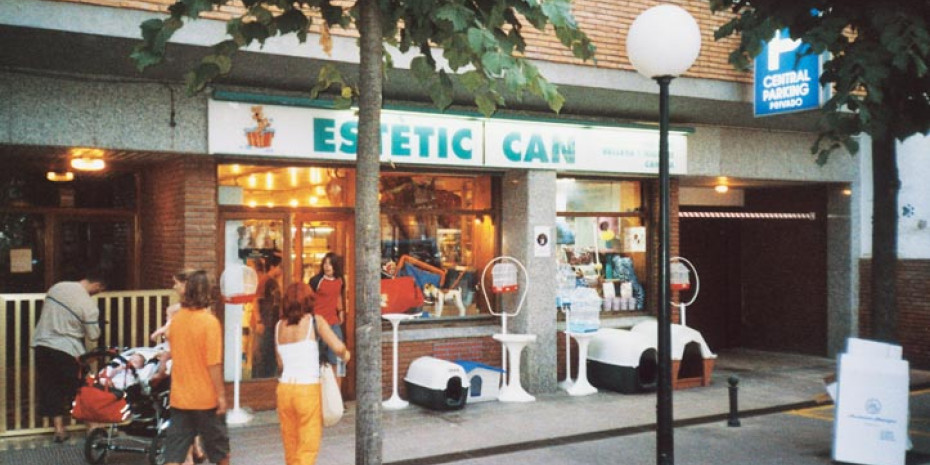The Spanish pet product landscape is currently experiencing an aggressive change in structure (see report on Page 34). Many of the existing pet shops are situated in the centre of towns and cities. They tend to be few and far between in rural areas, since here the needs of pets are catered for mainly by agricultural stores and owners preparing food themselves. For inner city shops, customer parking is a problem in particular, as there are few parking spaces or multi-storey car parks. On the other hand, going shopping by taxi or bus is a normal occurrence for city dwellers, and most shops offer a home delivery service. They have also integrated grooming studios and veterinary practices into their business. "Estetic Can", in the centre of seaside resort Lloret de Mar on the Costa Brava, is an 85 m² pet shop complete with grooming studio. It also sells cats and dogs. Pet product store chains such as are found in Germany, Sweden and the UK, for example, don't yet exist in Spain. There are only isolated instances in which entrepreneurs have created a business model incorporating regional branches, for example Mister Guau Center in Barcelona (see report on Page 40). The arrival of foreign chains on the scene is thus viewed with alarm by pet dealers, although the latter also harbour doubts that Spanish customers would accept large-format branch stores on the outer fringes of towns as places to shop. It's only recently that furniture stores and larger shopping malls have started opening outside the big cities, and they have been very slow to develop. Aggressive price competition is virtually non-existent in the Spanish pet product trade. Large shelving units stocked with pet food, for example, feature placards showing the manufacturer's recommended retail price. This is another reason for concern among many dealers and manufacturers that foreign pet product chains will start out from a low price level. "This would create a sharply negative price trend throughout the market that would ultimately kill off traditionally run speciality shops," one worried wholesaler told PET in Europe. It is also reported that Spanish pet owners have recently started showing greater willingness to pay higher prices to feed their pets, creating favourable conditions for premium and super-premium brands. And one pronounced feature of the buying behaviour of Spanish consumers is the desire for in-depth service and the provision of advice on a personal basis, so it's no wonder that many…



